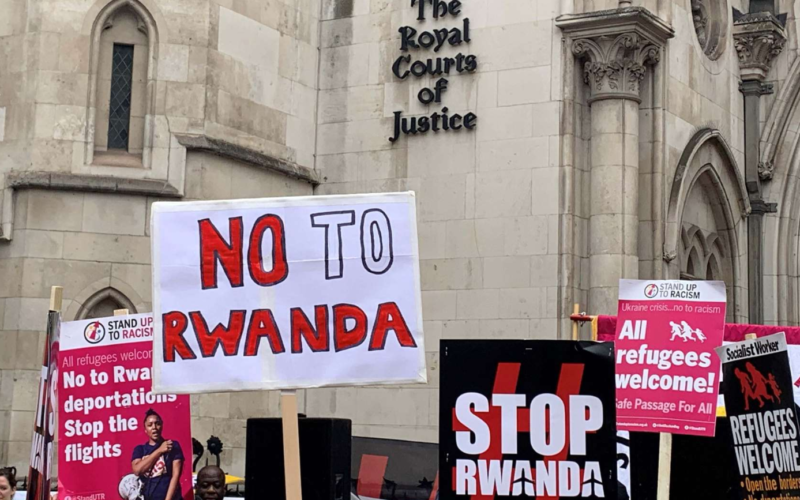The UK Home Office has presented its case to the Supreme Court, arguing that Rwanda has “powerful incentives” to adhere to the terms of a deportation deal, primarily motivated by the desire to maintain its reputation and avoid diplomatic consequences. The challenge to this multimillion-pound agreement stems from a Court of Appeal ruling in June, which deemed the deal unlawful. This deal involves the deportation of asylum seekers to Rwanda, an East African nation.
At the onset of the three-day hearing, Sir James Eadie KC, representing the Home Office, asserted that the policy to remove individuals to a country less attractive than the UK but deemed safe is lawful. He emphasized that despite concerns raised by the United Nations High Commissioner for Refugees (UNHCR), the Rwandan government would honor its assurances to the UK regarding the proper processing of asylum seekers.
Sir James underlined that “Rwanda knows full well the UK expects compliance” and that “the reputational consequences of non-compliance would be very serious for everyone.” The central issue before the Supreme Court is whether there is a genuine risk that asylum claims would receive inadequate consideration in Rwanda.
The Home Office contends that there are “pretty strong financial incentives” within the agreement to encourage Rwanda to treat asylum seekers properly. Additionally, an extensive monitoring scheme has been established by the UK government to oversee Rwanda’s decisions. This includes an IT tracking system to monitor each case, a complaint mechanism accessible to asylum seekers, and a monitoring committee to review a portion of the complaints.
Sir James argued that Rwanda’s past treatment of asylum seekers should not be the sole determinant, stating, “What matters is the analysis of the present and the future, in light of the assurances that have been given.” He emphasized that it is not necessary to establish that nothing could ever go wrong or that there is no prospect of individual cases being mishandled, as issues also occur in the UK and other European countries.
Sir James emphasized that both the UK and Rwandan governments are “committed” to the deal and have “very powerful” practical incentives to ensure compliance with the assurances. He noted that all parties involved were fully aware of the controversial nature of the arrangements when the deal was signed and the potential reputational impact if things were to go wrong. Rwanda also has ongoing financial interests and incentives to make the agreement work.
Raza Husain KC, representing asylum seekers, countered by describing Rwanda as an “authoritarian, one-party state” with a “woefully deficient” asylum system marked by unfairness and arbitrariness. The UNHCR has expressed grave concerns about the safety and legality of the policy, emphasizing that Rwanda lacks essential components of a reliable and fair asylum system. They also raised concerns about Rwanda’s history of refoulement and its discriminatory practices against asylum seekers from the Middle East.
The Supreme Court faces the critical task of determining the legality and safety of the deportation deal between the UK and Rwanda. While the Home Office highlights Rwanda’s incentives to comply based on reputation and financial interests, concerns raised by the UNHCR and asylum seekers bring a different perspective. The court’s decision will have significant implications for the treatment and rights of asylum seekers and the obligations of countries engaging in such agreements.








